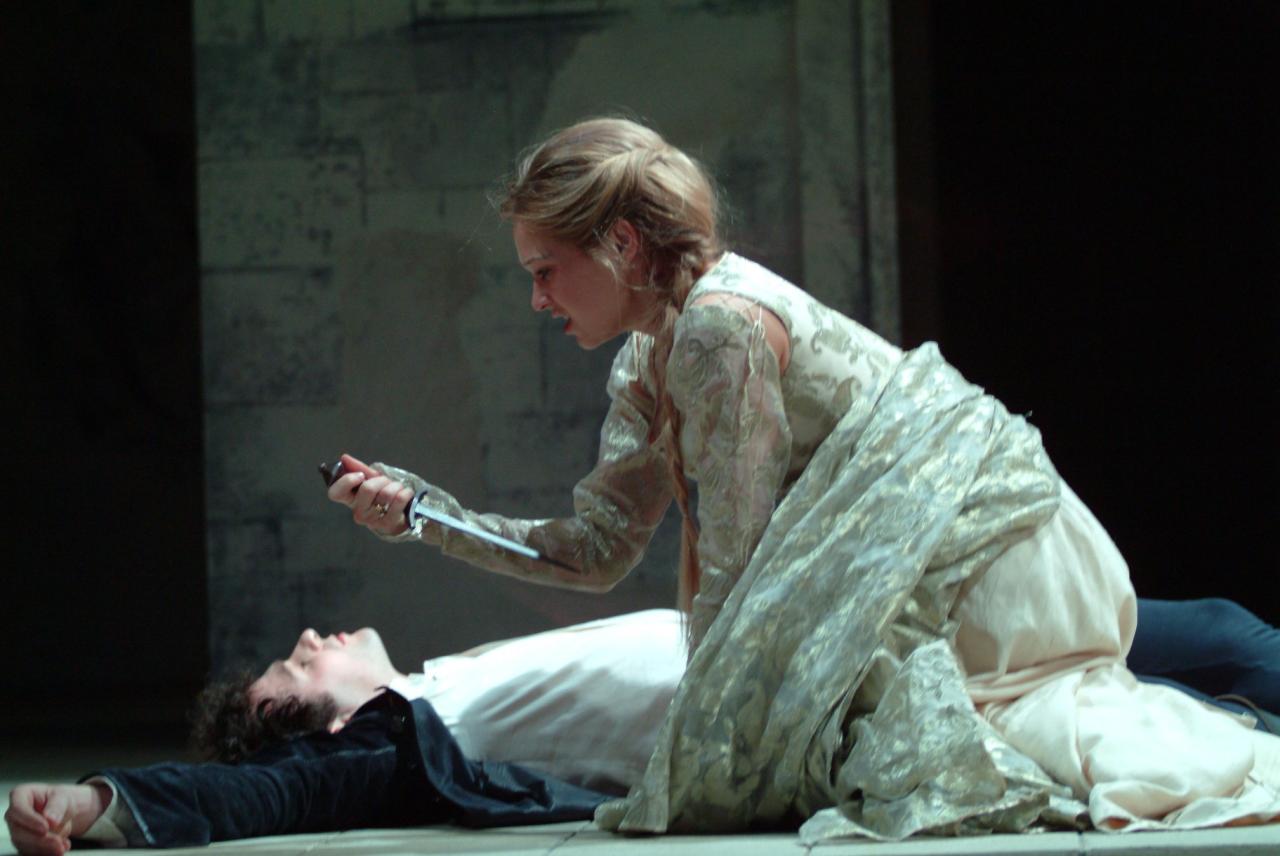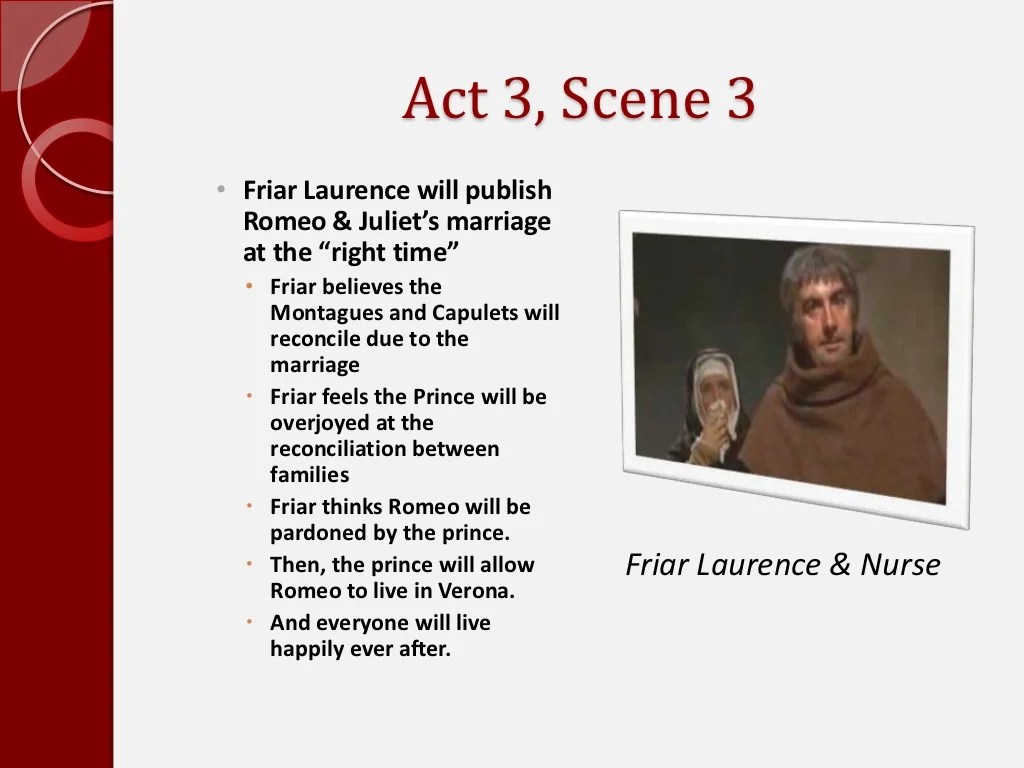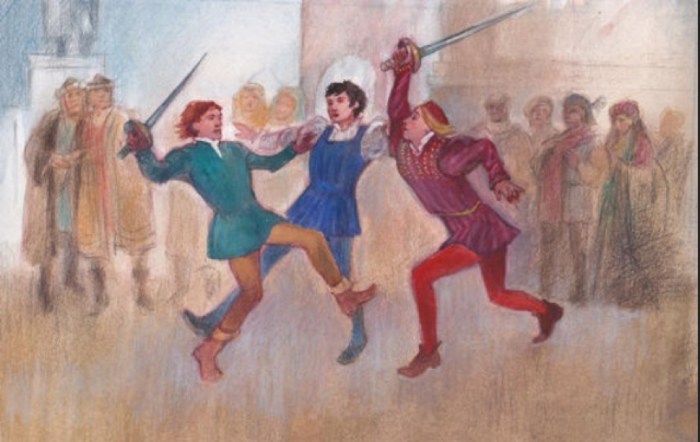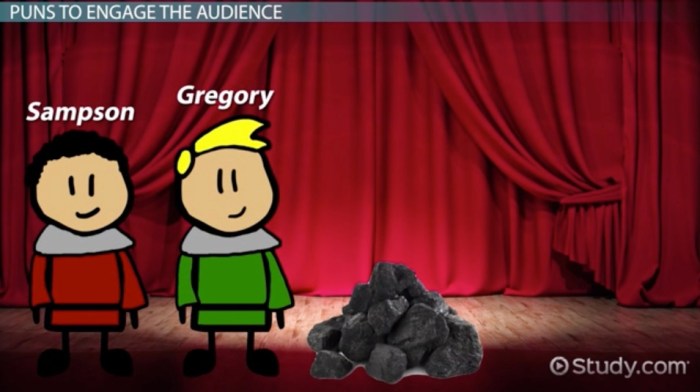The “Romeo and Juliet Act 3 Pun” offers a fascinating glimpse into the language, humor, and themes of Shakespeare’s iconic play. Through wordplay and witty puns, the characters reveal their personalities, advance the plot, and foreshadow the tragic events to come.
From Romeo’s romantic quips to Mercutio’s sharp-tongued banter and the Nurse’s earthy humor, puns permeate Act 3, adding layers of meaning and entertainment to the story.
Act 3 Pun
The Act 3 pun in Romeo and Juliet is a play on words that involves the character of Mercutio and his dying words. After Tybalt mortally wounds Mercutio, Mercutio delivers a pun that has been interpreted in various ways.
Mercutio’s Pun
Mercutio’s pun is: “Ask for me tomorrow, and you shall find me a grave man.”
This pun is a play on the word “grave,” which can mean both “serious” and “a place of burial.” Mercutio is essentially saying that if you ask for him tomorrow, you will find him either in a serious state (dead) or in a grave (buried).
Significance of the Pun, Romeo and juliet act 3 pun
The pun is significant in several ways. First, it foreshadows Mercutio’s death. The pun is a dark joke that hints at Mercutio’s impending demise.
Second, the pun reflects Mercutio’s character. Mercutio is a witty and playful character, and his pun is a reflection of his personality. Even in the face of death, Mercutio is able to make a joke.
Finally, the pun reflects the play’s themes of love and death. The pun is a reminder that even in the midst of love and happiness, death is always present.
Romeo’s Use of Puns
Throughout the play, Romeo’s language is characterized by its wit and wordplay. He frequently employs puns, which are humorous plays on words that exploit their multiple meanings or sounds.
Romeo’s use of puns serves several purposes. First, they add a touch of levity to the often tragic events of the play. By using puns, Romeo can defuse tension and create a sense of humor amidst the chaos. Second, Romeo’s puns reveal his intelligence and quick wit.
He is able to think on his feet and come up with clever wordplay, which demonstrates his mental agility. Finally, Romeo’s puns contribute to his characterization as a romantic and passionate young man. His playful use of language reflects his youthful exuberance and his love for Juliet.
The wordplay in Romeo and Juliet’s Act 3 is quite remarkable. For instance, when Mercutio quips about Tybalt’s sword, he remarks, “If you do, mine is as good as yours.” This humorous exchange highlights the characters’ wit and the play’s underlying themes.
Speaking of wit, have you heard about the latest development in forensic science? Check out the FBI crime lab answer key for some fascinating insights into crime-solving techniques. Returning to Romeo and Juliet, the puns in Act 3 continue to add depth and humor to the play’s tragic narrative.
Examples of Romeo’s Puns
- In Act II, Scene IV, Romeo puns on the word “farewell” when he says to Juliet, “Farewell, farewell! One kiss, and I’ll descend.” Here, Romeo is playing on the double meaning of “farewell,” which can mean both “goodbye” and “a kiss.”
By using this pun, Romeo is able to express his desire for a kiss while also acknowledging that he must leave.
- In Act III, Scene III, Romeo puns on the word “light” when he says to Juliet, “But soft! What light through yonder window breaks? It is the east, and Juliet is the sun.” Here, Romeo is playing on the multiple meanings of “light,” which can refer to both physical light and to enlightenment or love.
By using this pun, Romeo is able to express his love for Juliet and to compare her to the sun, which is a symbol of beauty and power.
Mercutio’s Witty Puns

Mercutio, Romeo’s close friend, is known for his witty and often bawdy puns. In Act 3, Mercutio employs puns to provide comic relief and social commentary.
Mercutio’s puns often rely on wordplay and double entendres. For example, when Tybalt challenges Romeo to a duel, Mercutio says, “Tybalt, the rat-catcher will have no need of thee, if thou art a man.” This pun plays on the word “rat-catcher,” which can refer to both a person who catches rats and a person who catches thieves.
By calling Tybalt a “rat-catcher,” Mercutio is both insulting him and suggesting that he is a thief.
Mercutio also uses puns to comment on the social conventions of his time. For example, when Romeo is lamenting his love for Rosaline, Mercutio says, “If love be rough with you, be rough with love; prick love for pricking, and you beat love down.”
This pun plays on the word “prick,” which can refer to both a sharp object and a sexual act. By telling Romeo to “prick love for pricking,” Mercutio is suggesting that Romeo should use violence to get back at Rosaline for rejecting him.
Mercutio’s puns are not always well-received by his companions. In fact, Romeo often chastises Mercutio for his bawdy humor. However, Mercutio’s puns provide a much-needed comic relief in the midst of the play’s tragic events.
The Nurse’s Humorous Puns: Romeo And Juliet Act 3 Pun

The Nurse in Romeo and Juliet is a vibrant and loquacious character whose speech is peppered with puns and wordplay. These puns add a touch of humor to the play and provide comic relief amidst the tragic events.
One of the Nurse’s most memorable puns occurs in Act 3, Scene 5, when she is speaking to Juliet about Romeo’s banishment. She says, “If you had the strength of ten men, you would not have the strength to lift up your Romeo from that banishment.”
This pun plays on the idiom “to have the strength of ten men,” which means to be very strong. The Nurse’s pun suggests that Juliet is so weak with grief that she could not even lift a feather, let alone her beloved Romeo.
Another example of the Nurse’s puns occurs in Act 3, Scene 3, when she is talking to Romeo about his love for Juliet. She says, “Your love is as fresh as a daisy.” This pun plays on the phrase “as fresh as a daisy,” which means to be very young and innocent.
The Nurse’s pun suggests that Romeo’s love for Juliet is pure and new.
The Nurse’s puns provide comic relief in the midst of the tragedy. They add a touch of lightness to the play and help to make the characters more relatable. The Nurse’s puns also show that even in the darkest of times, there can be laughter.
Dramatic Irony in the Puns

The puns in Act 3 of Romeo and Juliet are rife with dramatic irony, a literary device that creates a contrast between what the characters know and what the audience knows. This contrast heightens the impact of the puns, adding layers of foreshadowing and tragic meaning.
Puns Foreshadowing Romeo’s Banishment
Romeo’s use of puns foreshadows his impending banishment from Verona. When Mercutio tells him that Tybalt has sent a challenge, Romeo replies, “I will withdraw; but this intrusion shall now seeming sweet convert to bitter gall.” The word “gall” is a pun on “gall,” meaning bitterness, and “gall,” meaning a bitter substance produced by the liver.
This pun foreshadows Romeo’s exile, which will turn his sweet love for Juliet into a bitter experience.
Puns Foreshadowing Tybalt’s Death
Mercutio’s puns also foreshadow the tragic death of Tybalt. When Romeo tries to stop the fight between Mercutio and Tybalt, Mercutio quips, “A plague on both your houses!” This pun foreshadows the bloody feud between the Montagues and Capulets, which will ultimately lead to Tybalt’s death at Romeo’s hand.
Puns Foreshadowing the Lovers’ Deaths
Even the Nurse’s humorous puns foreshadow the tragic fate of Romeo and Juliet. When she tells Juliet that Romeo has been banished, she says, “He is dead, he is dead, he is dead!” This pun foreshadows the lovers’ eventual deaths, which will come as a result of their forbidden love.
The dramatic irony in the Act 3 puns adds a layer of complexity and foreshadowing to the play. The audience’s knowledge of the impending tragedy makes the puns both humorous and poignant, adding depth and resonance to the story.
Cultural and Historical Context

The puns in Act 3 of Romeo and Juliet were written during the Elizabethan era, a period of significant cultural and linguistic change in England. The Elizabethan era was characterized by a flourishing of literature, art, and music, and the English language was undergoing a period of rapid expansion and development.
The puns in Act 3 reflect the language and humor of the Elizabethan era. Elizabethan puns were often based on wordplay, double entendres, and malapropisms. They were used to create humor, to make a point, or to simply show off the author’s wit.
Significance of Wordplay and Puns in Elizabethan Literature
Wordplay and puns were an important part of Elizabethan literature. They were used by writers to create humor, to make a point, or to simply show off their wit. Puns were also used to create dramatic irony, or the contrast between what a character says and what the audience knows to be true.
Quick FAQs
What is the significance of the pun in Act 3 of Romeo and Juliet?
The pun in Act 3, “I am hurt with an arrow,” plays on the double meaning of “hurt” as both physical pain and emotional anguish, foreshadowing Romeo’s impending death and Juliet’s grief.
How does Romeo’s use of puns contribute to his characterization?
Romeo’s puns reveal his wit, charm, and romantic nature, but they also hint at his immaturity and lack of foresight.
What is the purpose of Mercutio’s witty puns?
Mercutio’s puns serve as a form of social commentary, satirizing the artificiality and superficiality of Elizabethan society.